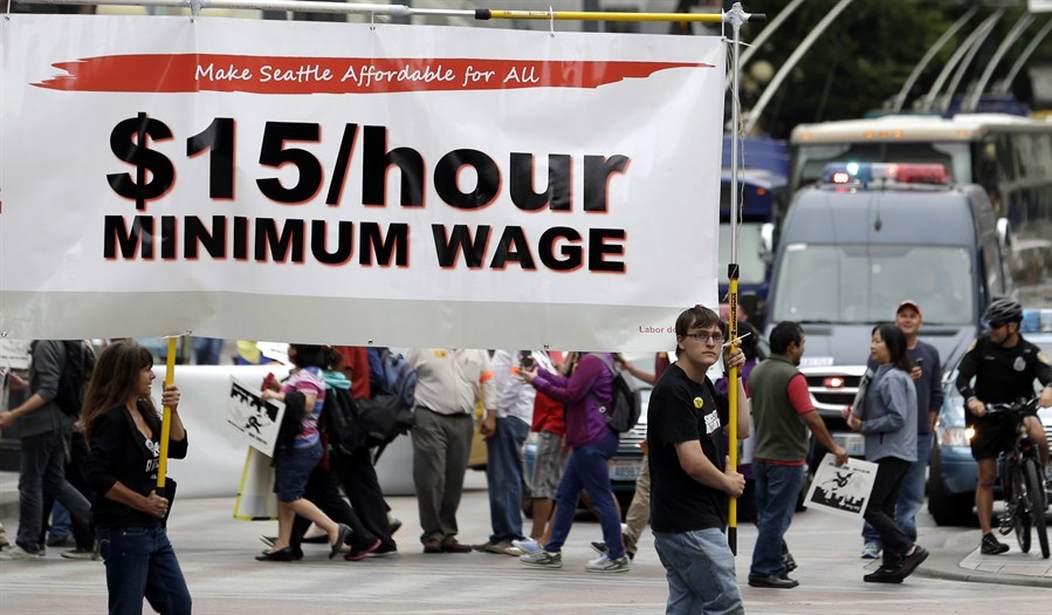The 2008 economic crash and slow recovery cost the American economy more than 2.5 million jobs for a prolonged period of time. There were numerous things both good and bad that the government did and could have done to mitigate the economic pain - but a new study suggests there was one policy that was particularly harmful.
Jeffrey Clemens and Michael Wither, two economists at the University of California at San Diego, studied the minimum wage hikes that took place around the country in 2009 and found that the states with large minimum wage hikes suffered greater job loss than those without. In fact, they found that the minimum wage hikes might have accounted for as many as 1.4 million (!) jobs lost during the 2008 recession due to minimum wage hikes.
What had happened was that, before the recession hit, Congress passed and President George W. Bush signed a law that would hike the minimum wage to $7.25 per hour by 2009. When the economic crisis happened, Congress did nothing to attempt to alleviate these minimum wage hikes, providing the economists with this experiment.
As Clemens and Wither write:
In July 2009 roughly half of US states were bound by the new federal minimum to increase their minimum wage rates by 70 cents, from $6.55 to $7.25 per hour. The remaining states’ minimum wage rates changed by an average of roughly 10 cents...
Over the late 2000s the average effective minimum wage rate rose by nearly 30% across the United States. Our best estimate is that these minimum wage increases reduced the employment of working-age adults by 0.7 percentage points. This accounts for 14% of the employment rate’s total decline over this time period and amounts to 1.4 million workers. A disproportionate 45% of the affected workers were young adults (aged 15 to 24).
Recommended
This is more than just a small effect of these minimum wage hikes. This is massive, and targeted at young adult workers. The authors also found that take-home incomes suffered - that low-skill workers' incomes fell by more than $100 over the subsequent years after a minimum wage hike. "Two years following the minimum wage increases we study," the authors write, "low-skilled workers had become significantly less likely to transition into higher-wage employment."
This is another study to add to the canon of economic literature finding negative employment effects from minimum wage hikes. While there's a distinct school that argues that minimum wage hikes result in no or even positive employment growth, the plurality of economic literature finds at least a small effect. This study isn't about a small effect though - it suggests minimum wage hikes are hugely harmful.
President Obama made a $10.10 minimum wage a major feature of his rhetoric over the last couple of years. With information like this, it might be prudent for President Obama and other minimum wage boosters to leave wage laws to state legislatures to decide. 20 states introduced a higher minimum wage in 2015. We can observe what happens there without foisting a potentially job-killing policy on the nation as a whole.
Hat tip: Sam Bowman
























Join the conversation as a VIP Member